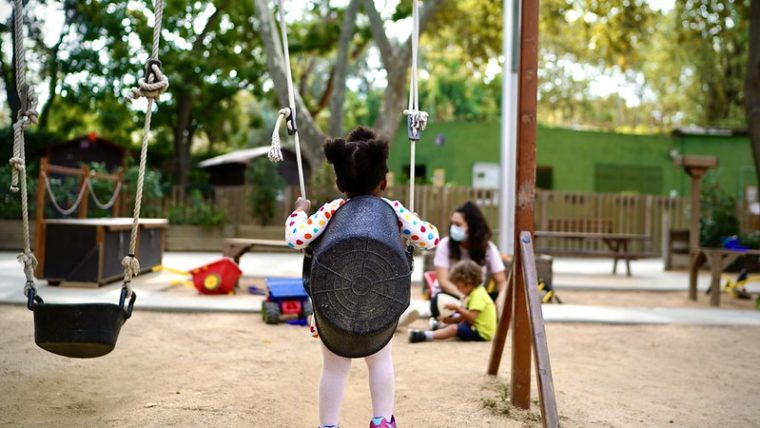Nursery Schools for the Climate: a plan to combat the climate crisis from early childhood
Children are one of the most vulnerable groups in the current climate crisis, and also those set to suffer from it most in the future. The educational community from the city’s 103 municipal nursery schools are looking to combat this situation through the strategy “Bressols pel Clima” [Nursery Schools for the Climate]. The initiative is a roadmap with forty specific measures to green up nursery school playgrounds, drive renewable energy, improve temperatures and waste management and foster sustainable food and environmental education.
Municipal nursery schools have so far promoted action on the climate crisis independently. The new strategy is a joint and coordinated response from all nursery schools to promote stronger action on the climate emergency in Barcelona. The most notable steps in the plan are:
Greened up spaces
More trees and plants will be added in playgrounds and checks carried out to see if green rooftops can be installed on top of nursery school buildings.
Nursery schools are also now taking part in the “Open Playgrounds” initiative for everybody to make use of them.
Energy transition
Renewable energy installations to be increased at nursery schools. At present there are 58 centres with solar installations, 4 with solar panels and 76 on power contracts with the public metropolitan electricity distributor Barcelona Energia.
There will also be a drive to create energy communities in buildings shared with the Municipal Institute for Housing.
Thermal comfort
Studies will look at which schools and which playgrounds can be added to the network of Climate Shelters, taking into account their suitability in terms of geography and childhood. The first five nursery school playgrounds in this network are expected to be added this summer.
Reduction, reuse and recycling
Four out of ten nursery schools will be taking part in or organising some sort of market to exchange clothing, toys and various child-rearing items. This initiative will help to reduce consumption and have a strong educational impact relating to reuse and waste reduction. The “Bressols pel Clima” strategy seeks to make these experiences more widespread and commonplace.
Healthy and sustainable food
The nursery school network will look to consolidate its backing for local organic produce, which currently makes up 90% of its menus. Measures here are geared towards improving the presence of vegetable proteins, offering families recommendations about sustainable menus, avoiding food waste, establishing direct links with local compost facilities and getting food waste to them.
Environmental awareness and habits
Twenty-seven municipal nursery schools currently form part of the Escoles + Sostenibles network and the Commitment to Climate Justice. The goal is to add all nursey schools to the network with specific actions within their educational projects.

















